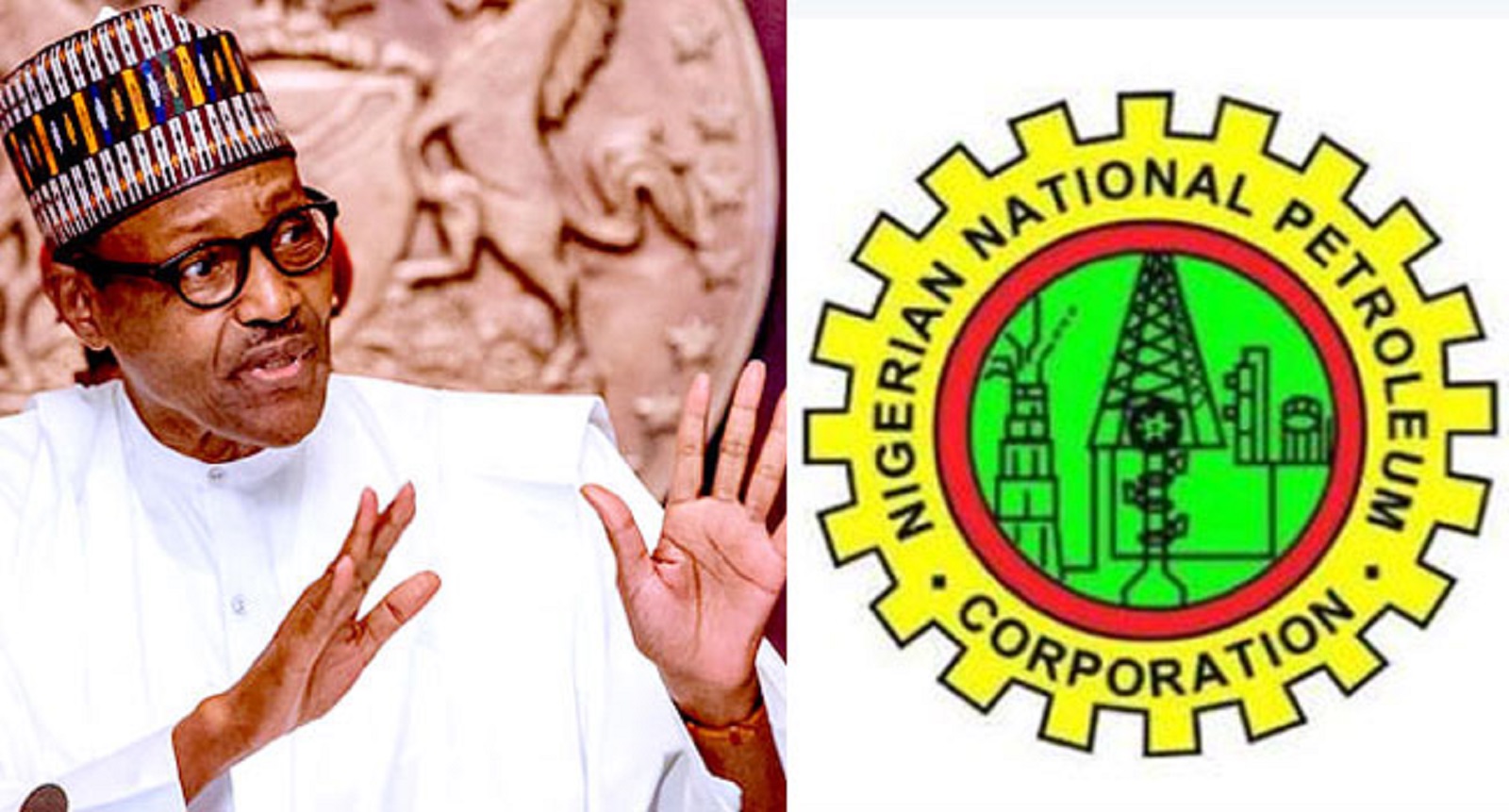NNPCL has illegally deducted N426bn from federation revenue with Buhari as Petroleum Minister.
NewsOnline Nigeria reports that the Nigerian National Petroleum Corporation Limited (NNPCL) illegally deducted N426 billion from the federation revenue under former president Muhammadu Buhari in one year.
This was revealed in a 2021 audit report published by the Office of the Auditor General of the Federation. The report, published in November 2024, audited the activities of the NNPC between 2020 and 2021 when Buhari was the Minister of Petroleum.
ALSO: President Tinubu Splits Nigerian College of Aviation Into Six
This Nigeria news platform understands that for all of the four issues identified as financial irregularities in NNPC accounts, the company did not provide any response to the auditor’s inquiry.
UNAUTHORISED DEDUCTIONS FROM THE FEDERATION REVENUE
In 2021, the NNPC deducted N82.95 billion from revenue generated through crude oil and gas sales without any evidence of authorisation, according to the audit report.
The audit flagged these actions for contravening Section 162(1) of the Nigerian Constitution, which mandates that all government revenues, except specified exceptions, must be paid into the Federation Account.
It also reported violations of Paragraph 213(ii) of the Financial Regulations, which states, “On no account shall any withdrawal be made from the revenue account other than for the purpose of transfer to the consolidated account.”
The deductions further breach Paragraph 217, which holds accounting officers responsible for ensuring that all revenues are promptly and accurately accounted for, and Paragraph 223, which prohibits deductions from revenue collections to adjust previous over-credits.
Similarly, out of N484.73 billion generated on domestic crude sales between March and May 2021, the NNPCL retained the N343 billion for “value shortfalls, strategic stock holding costs, pipeline losses and maintenance”.
According to the audit report, no documentation was provided to justify these deductions. As with earlier deductions, the audit flagged these actions for violating Section 162(1) of the Constitution and Paragraphs 213(ii) and 217 of the Financial Regulations.
With these deductions, the report identified risks to the federation, such as possible revenue loss, fund diversion and misappropriation of public funds.
OTHER FINANCIAL BREACHES
The audit also found that N83 billion of the Federation’s miscellaneous revenue, generated from joint venture operations between 2016 and 2020, was warehoused in a sinking fund account held by the Central Bank of Nigeria and NNPCL.
This violates Treasury Circular Ref. No.: TRY/A12 & B12/2013, which mandates that unspent balances be returned to the treasury by year-end.
Paragraph 414 of the Financial Regulations further states that unexpended funds “shall not be drawn for the purpose of setting it in reserve to meet impending payments or be carried to a deposit or a suspense account”.
The audit flagged another N3.74 billion payment as “shortfalls from the sale of MT cargo of PMS”. The NNPCL failed to provide supporting documents or transaction details for this payment.
This breaches Paragraph 603(i) of the Financial Regulations, which requires all vouchers to include full transaction details and relevant supporting documents.
ANTI-CORRUPTION EFFORTS UNDER BUHARI
Meanwhile, this is not the first time audit reports have indicted the NNPCL. For instance, the Auditor General of the Federation reported that $16 billion of oil revenue went missing in 2014, just before Buhari became president.
Buhari, as a fairly new president, identified corruption in the oil sector as a core focus of his anti-corruption campaign. At the 2016 anti-corruption summit in London for instance, he doubled down on the extent of corruption as a problem in the sector and called on the international community to assist his efforts.
As of 2021 however, Buhari was sure that his administration had made progress in curbing corruption in the Nigerian oil sector, especially in the NNPCL. At the time, the company had published its first financial audit in 43 years.
At a book presentation ceremony in 2021, for instance, Buhari said: “the current transparency and accountability drive in the NNPC is a good indication of the success of our administration’s effort in stemming corruption and sharp practices in the petroleum industry”.
